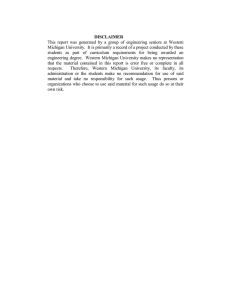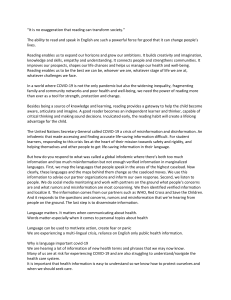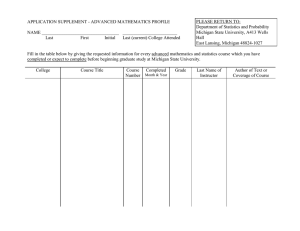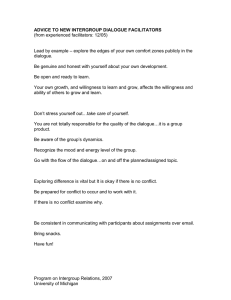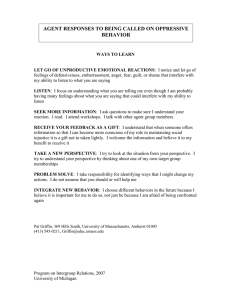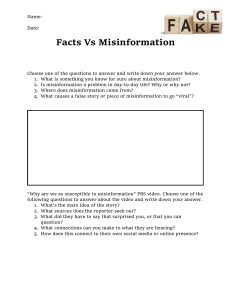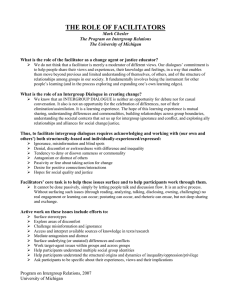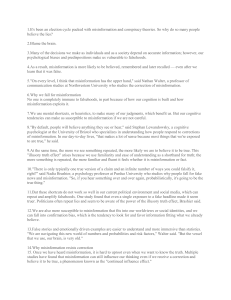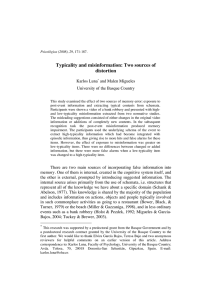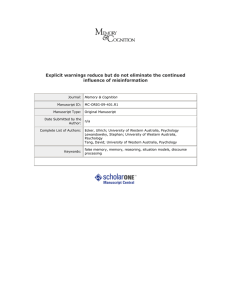MulticulturalGroundrulesforDiscussion.doc
advertisement
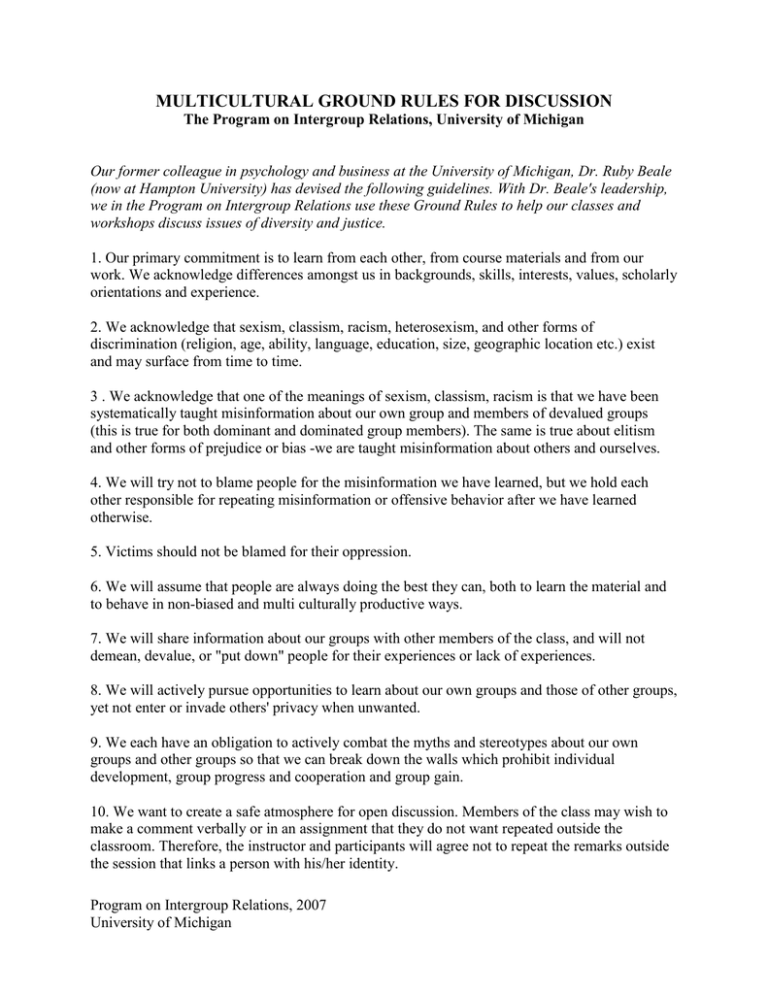
MULTICULTURAL GROUND RULES FOR DISCUSSION The Program on Intergroup Relations, University of Michigan Our former colleague in psychology and business at the University of Michigan, Dr. Ruby Beale (now at Hampton University) has devised the following guidelines. With Dr. Beale's leadership, we in the Program on Intergroup Relations use these Ground Rules to help our classes and workshops discuss issues of diversity and justice. 1. Our primary commitment is to learn from each other, from course materials and from our work. We acknowledge differences amongst us in backgrounds, skills, interests, values, scholarly orientations and experience. 2. We acknowledge that sexism, classism, racism, heterosexism, and other forms of discrimination (religion, age, ability, language, education, size, geographic location etc.) exist and may surface from time to time. 3 . We acknowledge that one of the meanings of sexism, classism, racism is that we have been systematically taught misinformation about our own group and members of devalued groups (this is true for both dominant and dominated group members). The same is true about elitism and other forms of prejudice or bias -we are taught misinformation about others and ourselves. 4. We will try not to blame people for the misinformation we have learned, but we hold each other responsible for repeating misinformation or offensive behavior after we have learned otherwise. 5. Victims should not be blamed for their oppression. 6. We will assume that people are always doing the best they can, both to learn the material and to behave in non-biased and multi culturally productive ways. 7. We will share information about our groups with other members of the class, and will not demean, devalue, or "put down" people for their experiences or lack of experiences. 8. We will actively pursue opportunities to learn about our own groups and those of other groups, yet not enter or invade others' privacy when unwanted. 9. We each have an obligation to actively combat the myths and stereotypes about our own groups and other groups so that we can break down the walls which prohibit individual development, group progress and cooperation and group gain. 10. We want to create a safe atmosphere for open discussion. Members of the class may wish to make a comment verbally or in an assignment that they do not want repeated outside the classroom. Therefore, the instructor and participants will agree not to repeat the remarks outside the session that links a person with his/her identity. Program on Intergroup Relations, 2007 University of Michigan 11. We will challenge the idea or the practice, but not the person. 12. We will speak our discomfort. 13. Are there other ground rules that the class would like to add...? Program on Intergroup Relations, 2007 University of Michigan
